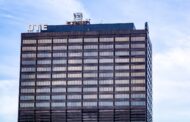CARACAS (AP) – Venezuelans’ enthusiasm for beauty pageants, including Miss Venezuela, is unmatched. Miss Venezuela, the crown jewel, may be the one event that can unite a deeply divided nation. Every year, Venezuelans tune in to watch the Miss Venezuela pageant. They put aside class, race, and politics.
Behind the cheers, claps, and applause for women competing for the title of the year is a society that is deeply conservative with little tolerance for defiance against heteronormative norms. Sofia Salomon wants to change that.
She has submitted an application to participate in the Miss Venezuela contest. If she is accepted, she would be the first transgender woman in Venezuela to compete.
Salomon: “I believe it’s a great way to make my community visible, to echo positive things and to show people the realities of transgender woman.”
LGBTQ+ rights are not a major issue for families to discuss at dinner tables or in campaigns to overthrow President Nicolas Maduro by 2024.
Caracas’ planned Pride march on Sunday may attract hundreds of people but the LGBTQ+ community is not accepted in Venezuela, unlike other Latin American countries with Roman Catholic values. Venezuelans, who idolize European culture and lifestyles, have generally resisted the acceptance of the LGBTQ+ community in Europe and the continent’s rejection of homophobia.
Venezuela’s highest court repealed in May a law which punished military personnel for consensual homosexual conduct. However, it has waited seven years to decide a case aimed at giving same-sex couples a right to get married.
The court has not yet ruled on Tamara Adrian’s case which she brought to the court in 2004. The transgender woman is seeking to change her gender and name on her birth certificate as well as in public records. The government claims that this is already allowed by law, but Adrian and Inter-American Commission on Human Rights disagree. She has filed more than 30 briefs on her case and requested hearings, but no one has responded.
Adrian was the first transgender member of the Venezuelan legislature in 2015. She represented a Caracas district. In June, this year, Adrian entered the opposition’s primary presidential race in an attempt to unseat Maduro.
Adrian stated that “in order to see social changes, the state has to implement public policies. In that sense, there is undoubtedly an penetration of change (in other Latin American nations) that you can’t see in Venezuela.” “It is not uncommon for people to be unaware that certain phrases are racist, homophobic, transphobic, or misogynistic.”
Salomon placed in the top six at Miss International Queen last year, the largest beauty pageant of transgender women. She mentioned the law Adrian fights during the event.
She said, “I’d like to see the law changed so that transgender women can be accepted under the name of their choice and feel safer.”
Salomon is encouraged by the fact that a transgender woman, who was chosen in February for Puerto Rico Miss Universe – a first in the Caribbean – has been selected to compete in Venezuela Miss Universe. Salomon said that her parents, sister and boyfriend are all in support of her decision to enter the contest. The comments and emojis left on her Instagram posts have been overwhelmingly positive.
The Miss Venezuela organization has not responded to a comment request from The Associated Press.
Miss Venezuela winners compete for Miss Universe. The global competition opened up to transgender competitors starting in 2012. Osmel Sousa declared that the “humbly Christian Venezuelans will never accept this position” after that decision.
Salomon was praised by Marcia Ochoa of the UC Santa Cruz Department of Feminist, Critical Race and Ethnic Studies.
Ochoa stated that Venezuelan culture allows for an idiosyncratic identity of gender: Miss. You can tell if someone is in a beauty contest by the way they dress. You can say “es todauna miss.” This phrase is a Venezuelan compliment that a woman who looks perfect is “absolutely a Miss Venezuela.”
Angela Ponce, from Spain, became the first transgender participant in Miss Universe 2018. Last year, a Thai tycoon and transgender women purchased the Miss Universe Organization, which was once owned in part by the former U.S. president Donald Trump, for $20 million.
Miss Venezuela winners can achieve instant fame, which may lead to influential positions. Irene Saez was the 1981 Miss Universe and went on to be mayor of Caracas. She ran for president, but lost to Hugo Chavez in 1998.
Josefina Meza, a resident of Caracas, has been watching Miss Venezuela with her family and friends for decades. They choose favorites and compete to see who will win. Mejia said that she is not against Salomon’s effort but would prefer to see transgender woman stay out of the competition.
Mejia stated, “This is a very conservative society and we sometimes judge people when we shouldn’t.” “I’d like to see a separate competition for that gender.”
In 2022, the Venezuelan Observatory of LGBTIQ+ Violence, a group of activists, reported 97 violent incidents against members of this community in Venezuela. This included 11 homicides. These figures are probably an underestimate because many cases go unreported. In at least 10% cases, a formal complaint was made to the authorities.
Salomon is interested in a real estate career. She received an email confirming that Miss Venezuela had received her application, but she doesn’t yet know if she was accepted. She believes her pageant and modeling experience gives her a competitive advantage.
Salomon stated, “I believe that experience cannot be improvised.” “That’s why people believe that I will create history in this country.”











